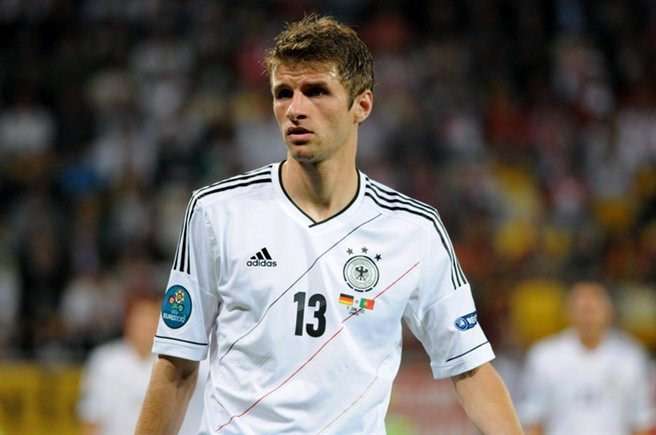As the World Cup edges closer most of us all ponder whether the different national teams have their strategies set up already. We do after all have a few months left of the season, months that can and probably will change the faith of an array of different players. Injuries, forms or just droughts might prove to be devastating. This is the spring of discontent, this is the time where players can’t afford a slip-up or suffer an injury.
The German striker is of great interest to many. There have been discussions whether Timo Werner should play or not and whether Thomas Müller should start at striker or at right midfield. This position is of great interest and grave importance as well. A good and able, albeit flexible striker can change the faith of a team. If he performs well, the team might perform well. A well-suited striker might prove to be the final piece of the jigsaw, while a badly suited one might prove to be the Achilles heel of the whole Mannschaft. There are a few options that need pondering and in this article, GGFN aims to go through the different options Joachim Löw has at striker and who would suit his position and system the best.
Löw is a big supporter of flexibility. Most of his tactical masterpieces throughout the last few years have been based upon a mobile system that works together to create madness. Löw has created a system where every player has a very specific role and a task to do and these players are very much allowed to help each other flourish in their different roles. At striker, Löw has played around quite a bit. His vast array of options makes it possible for him to do just that and by testing players like Werner, Sandro Wagner, Lars Stindl, Müller and even Max Kruse at striker, he has broken ground for the foundation of his attack and he did it rather early. He already knows which striker suits his system best and which striker can be implemented if a change is needed. Preparation has been everything for the German.
The national team craves a striker that is mobile and flexible, with good enough understanding to be able to play this specific role in the game. He needs to have the ability and vision to drop down into space when needed, but also needs speed to be able to run behind when Mesut Özil or Toni Kroos has the ball at their feet. He also needs to have the understanding for what to do and when. Timing and understanding seem to be a big part of the essence of the German striker’s abilities.
Werner is a good choice for striker in this team as he can create space with his quick stature. He is an exceptional finisher as well and can score with different parts of his body. His swift nature makes it plausible for him to create space by running behind. However, the RB Leipzig forward has also shown promise as a winger. He played there in his maiden years at VfB Stuttgart, where he developed his technical abilities. This makes it possible for Löw to field a duo in attack, where Werner drifts wide and the other striker exploits the space that Werner has created through his often very clever runs.
His flexible nature is a great asset for Löw, but one must admit that Werner’s ball-playing skills are limited and if needed, he might just cause problems for himself and his own national team when dropping down as a false nine. Stindl suits that role perfectly, however. While Stindl’s season at Gladbach has not necessarily been among his greatest, his skills as a false nine or even as a shadow striker are hard to doubt. While at Hannover 96 he developed a fantastic eye for a pass and he has used and perfected that at Borussia Mönchengladbach. He has constantly shown us, and Löw, that he is the perfect suitor for the role as a shadow striker in the national team, would Löw crave one.
The role of a false nine, or even a shadow striker, makes it possible for the wingers to drift inside to attack the space created. However, this might exploit the wings as the wing-backs are needed to cover in attack, mainly due to Löw’s overloading system.
It’s also un-German like to play without a striker as they’ve always had a proper Sturmer in the area, a player that’s able to attract the attention of defenders. Therefore, Stindl as a false nine is not what you would guess. However, he could play as the German Sturmer. He is well-rounded and has the physical and technical attributes needed for that exact role. While he perhaps isn’t as quick as Werner, his cleverness in possession of the ball makes it possible for him to find passes or space that Werner just couldn’t find. His lack of quickness, as compared to Werner of course, does make him a bit limited when not in possession of the ball as he constantly has to threaten the opponent’s offside line. This mustn’t be a problem though.
Stindl’s flexibility appeals to Löw. He has played Stindl in different roles and he has constantly impressed us with his performances. The 29-year-old would be a good choice for the striker position in the national team come the world cup as he would fit the German way of playing. He knows his pressing, he’s clever both with and without the ball and possesses the eye for a pass, which Werner and Wagner lack. His versatility is an undervalued asset for Germany.
Wagner is the more limited option in attack. If Löw wants to field a raw and powerful Sturmer, the Bayern Munich striker should be his go-to guy. Wagner’s strength and ability to finish from many different angles makes him difficult to stop. He is another hidden weapon for die Mannschaft. But he would be rather hard to fit in. There is no way Wagner should, could or will start a game this summer. His inability to connect with his fellow attacking comrades makes it very difficult for him to fit in in any way. But he is the perfect choice when they need a joker, a player that can change an approach. Wagner is therefore not at all the best of choices from the start, albeit he has some good qualities as a substitute.
Another not too different player is the prince of World Cup, Thomas Müller. He possesses the ability to finish from an array of different angles, but often has more to his game than just that. Müller’s clever nature makes it very possible and plausible for him to play on the flank as opposed to in the striker role. As the original Raumdeuter, he can use the space exploited by the striker to score goals for himself. He is an absolute expert at finding space in the area and he is even more of an expert at using that to his advantage.
Müller’s style and very undervalued technical abilities make him a clear starter for the national team, albeit his role is left undefined. Where should he play? As a striker that drifts out or as a winger that attacks space? His understanding and vision makes it very possible for him to play as a false nine or as a shadow striker, but lack of speed could cause problems.
Müller is another player that appeals to Löw. His tactical flexibility makes him the perfect player, but also due to his actual attributes as a footballer and as a leader on the pitch. As stated before, Müller must play. It’s just a question of how to utilise him.
The choice is difficult. Many have said they would like Stindl to be given a chance at the beginning of the tournament. His abilities could make it possible for the German wingers, presumably Müller and Leroy Sané, to flourish. Stindl would also allow Müller to fully drift inside to attack the space created by his excellent movement. This symbiosis could be great to see, if we do get to witness it. The striker is important, but Löw will have an answer, he always does. Who he picks is a conundrum and its of grave importance.
By Axel Falk.










